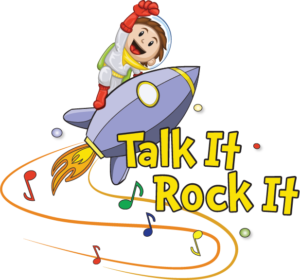
Communication is a vital and powerful tool in navigating the world. As parents, we want our children to express themselves openly and effectively. However, some children may face developmental delays in their speech and language skills. Early intervention is an important service that supports infants and toddlers (birth to age 3), not only with communication challenges, but other developmental issues as well. Early intervention focuses on empowering, not just the child, but the entire family, making parent coaching an integral part of the process. This blog post will explore the importance of parent coaching in early intervention, specifically focusing on speech and language skills. In addition, tips will be provided on how parents can support their child’s language development.
What is Parent Coaching in Early Intervention – Speech and language therapy?
Parent coaching is an approach that involves observing, training, guiding, and reflecting with parents on how to support their child’s speech and language development. Speech-language pathologists (SLPs) work closely with families to provide tools, strategies, and resources that are tailored to the child’s specific needs. This collaborative process helps parents actively engage in their child’s therapy, which often leads to more significant progress and success.
Early intervention focuses on the relationship that the parent has to the child, the activities they engage in daily, and the skills a child can learn during those daily routines. As a speech-language pathologist, I have evolved over the years in my inclusion of parents during speech and language therapy sessions. Initially, I focused more on my relationship to the child and my skills and techniques on helping a child communicate. I emphasized parent observation of speech therapy sessions and occasionally involved them in the activities.
I’m grateful for those years of a more direct teaching approach in working with kids. It helped me hone my skills on knowing what makes kids tick and what techniques they need to learn to talk. I was certainly successful, and I felt I had a great relationship with both my clients and their parents. By observing me working with their child, parents certainly learned some skills in how to help their child communicate. BUT, in my own reflection of my work with families, I realized that I was under-utilizing the most important asset in a child’s life – a parent or care giver that wants to help their child learn and grow. Empowering families to support their child’s developmental growth should be my primary focus. The coaching approach highlights the parent’s role in the child’s progress by providing guidance, support, and opportunities to practice new strategies.
Why is Parent Coaching Important in Early Intervention?
Research has shown that parent coaching in early intervention has a positive and long-lasting impact on both the child and family. When parents are actively involved in their child’s therapy, they gain insight into their child’s unique strengths and challenges. This involvement ultimately leads to stronger connections and more effective communication between the child and their family. Through coaching, parents learn to create a supportive and nurturing environment for their child, fostering success in speech and language development. Because of my extensive experience in working with kids, helping a child communicate felt easy and almost effortless. I simply knew what to do, because that was my life’s work since 1980. When I started including parents in the activities, though, I realized that the techniques that I use without thinking require practice and sometimes need to be broken into smaller steps. Parents have the essential skills of knowing their child better than anyone and knowing their daily routines. As a speech-language pathologist, I have the skills of knowing how to build on those daily routines. My approach to early intervention home visits changed when I fully realized that I was under-utilizing the most important resource – the parents.
What are Six Components of Coaching in Early Childhood Intervention?
The coaching process in early childhood intervention consists of six interrelated components:
1. Joint Planning: SLPs and parents collaborate to identify goals and develop a shared plan to address the child’s speech and language needs. This planning includes a routines-based assessment – discussing a family’s daily routines, how the child interacts during those routines, what activities go well, and what activities don’t go well. Parents are asked about their biggest concerns throughout their day. Early intervention should be based on those daily activities that parents find as priorities.
2. Observation: SLPs observe parents interacting with their child. I feel strongly that SLPs and any professional working with families first focus on the techniques that parents are doing naturally. Parents need to know what they are doing right before you ever give suggestions on what they could improve. I call this “catching parents in the act of being good.” Who doesn’t want to know what they are doing well? In addition, at times, parents can observe SLPs modeling strategies and techniques, offering insights into what works best for their child’s specific communication challenges.
3. Action/Practice: Parents implement the strategies and techniques learned from the SLP, actively participating in their child’s therapy and strengthening their bond. At times, I will suggest that a parent think about a specific technique throughout their day. The techniques I often teach are my WE CAN TALK strategies found on my website, www.TalkItRockIt.com. At other times, I will emphasize one particular routine such as mealtime. During that one routine, I may suggest a number of techniques to try. The discussion of what to try is ongoing – a back and forth with the parent on what works for them and what doesn’t.
4. Direct Teaching – As mentioned earlier, parents know their child better than I do, but I have skills in helping a child learn to communicate that parents may not know. Early intervention is truly a team effort. Having parents be the direct teacher for their child is crucial, but there are times when we need to use direct teaching. This involves me working directly with the child.
At times, I use direct teaching as a way to teach a particular skill to a parent and even have them critique me. For example, if I discuss a particular technique such as “positioning yourself in relation to the child,” I will have a parent observe me, focusing on that technique and observing how the child responded.
There are many reasons why direct teaching is an important component to parent coaching. If there is any component that I feel we forget to use, direct teaching is it. I often hear that “we should never make the parent feel like we are better than they are.” I have so many thoughts about this frequently heard statement. Here are some of those:
- Parents want guidance. That’s why they called us in the first place. Part of that guidance involves demonstrating particular skills. A totally hands-off approach is something I do not recommend.
- Meet the parents where they feel comfortable. When first meeting a family, I approach observation very carefully. I don’t want to push a parent beyond their comfort zone. Sometimes direct teaching helps a parent understand the process of intervention. This observation gives them some skill that they can practice throughout the week before being “observed.”
- Parents want to see that you are competent in knowing how to help their child. If we focus on the relationship we have with the parent, let them know that they are a valued member of the team, I have found that parents enjoy observing me working with their child. I have never felt that direct teaching causes a parent to feel unskilled.
- Parents LOVE watching someone else interact with their child. I have found that parents need to have the feeling that someone also thinks their child is the coolest little person in the world. They want to see that you have their child’s best interest in mind. Often, that can be shown beautifully by interacting with the child.
- Parents love seeing what their child is capable of doing. Because I have been a speech-language pathologist for many years, I have some tricks up my sleeve in knowing how to help a child imitate, follow directions, verbalize, etc. Parents beam with pride and amazement when they see what their child is capable of doing. I have found that this motivates parents to learn those techniques and raise their expectations of what they child can do.
Direct teaching is certainly not the most important component to Parent Coaching. But it is still a very valuable one. Don’t forget to use it.
5. Reflection: Parents and SLPs discuss their experiences and which strategies were effective, identifying areas for growth or improvement.
6. Feedback: Constructive feedback and support are provided to parents by the SLP to help refine their skills and empower them in their role as their child’s coach.
How Can I Coach Parents to Help Their Child Speak?
As an SLP, it’s essential to create a strong connection with the families you support, fostering trust and collaboration. Here are some tips for coaching parents:
– Actively listen to the parents’ insights and concerns, validating their expertise and knowledge of their child.
– Offer practical strategies and resources tailored to the child’s specific communication needs.
– Encourage open communication, allowing parents to ask questions, voice concerns, and share feedback.
– Provide ongoing support, celebrating successes while addressing challenges together.
– Empower parents to recognize their essential role in their child’s speech and language development journey.
Conclusion
Early intervention (birth to three) holds immense potential in supporting the language development of infants and toddlers with communication challenges. Key to this process is the role of parent coaching, empowering families to become active participants in their child’s growth and progress. SLPs, armed with empathy and a collaborative approach, can guide and support parents on this journey, fostering strong connections and unlocking the power of communication in the lives of their young clients.


